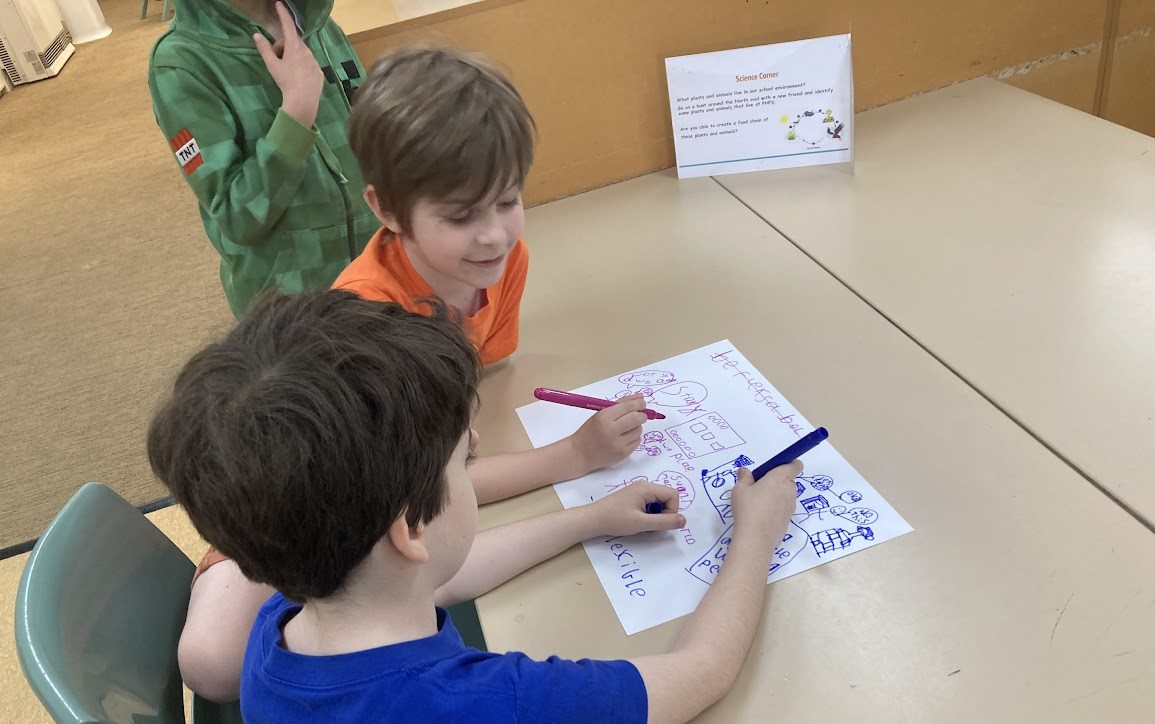Term 2, Week 6: How play impacts our development and wellbeing.
Greetings parents and carers,
Over the past few weeks the students in the 3/4NH have been continuing to develop their understandings of how play contributes to their development.
They have investigated the reasons why young animals play and made connections with their own play.
Why do animals play?
Simane: I think animals play so they can grow stronger.
Kuzey: To learn to defend themselves.
Van: To help them learn to survive.
Bilguun: Social skills
Isla: Animals play because it helps them learn
Elliot: To practise their reflexes
Seb: Practise fighting
Leo C: They play for fun
Siri: I think they like to play because they have fun and it makes them feel happy.
Do children play for the same reasons as animals?
NO
Seb: I don’t think animals always play for fun and I think people usually play for fun.
Noah: If you look onto thoughts and connections, it’s a lot of stuff about practise fighting or biting each other and humans are more modern- we don’t fight each other.
Simane: Humans don’t really bite each other and you know how usually animals bite each other and stuff. Humans don’t like to do that.
Rohan: It kind of depends what game they’re playing but some games likes tag are for running and speed but other games are just for fun. A lot of games are based on each other and some are completely different.
YES
Aslan: Because we are basically mammals. Not all of the skills are the same as us but some are that we might need in the future.
Nina: When we’re babies we bite people and scream and cry and I think we practise screaming so if we get into trouble we just scream and someone will come and help us. We also bite to see what can we actually do and test our skills.
Simale: Basically when you were a baby you didn’t know how to walk and dogs are the same. We learn to run, play tiggy.
Simane: I kind of don’t know which one to agree with because hwen animals were babies they do usually get random things and play with them and they usually do bite people and so do babies. They both do the same things when they are babies but when they are adults not really.
The children have also been analysing the available play spaces at PHPS. Inspired by the ‘radically inclusive’ playground movement (see this video), they have used a design brief that includes ‘3 levels of inviting’.
How are our play spaces:
- Physically inviting? (Physically accessible for all kinds of children).
- Socially inviting? (Encourage social connection)
- Emotionally inviting? (Improve the wellbeing of children who play in them)
They have begun designing ‘dream’ playgrounds for our school that would satisfy this brief.


Olive’s inclusive playground design
Van constructing a playground


Siri’s inclusive playground design
Moving forward, the children will be further investigating one of two questions through our project groups:
Physical Play: How can we improve the impact that physical play has on us at school?
Digital Play: How can digital play spaces help us learn and grow?
Some of their initial ideas are below:
Physical Play: How can we improve the impact that physical play has on us at school?
Jamie: We also want to do physical play. You could learn how to do sport or you could learn more skills of sport. Most of all when you get better at sport you get money.
Frankie: I chose physical play because it would be helping your muscles grow within you and occasionally during if you’re trying to exercise or somethign your body says this feels good and lets do more.
Seb: Playing tag.
Olson: We could learn about playing lava monster and maybe create a different version where there can be 2 or more lava monsters or we could make a hide and seek version.
HTB: Basketball, soccer. Teach other people how to play some sports that they might not know how to play.
Digital Play: How can digital play spaces help us learn and grow?
Flynn: I was talking with Jamie. We said mainly the same things.
Jamie: What we said was, when we did digital stuff we could do coding and when we get really good at coding we could do AI and
Flynn: We could protect our country if we make strong enough stuff.
Simane: Evie said she wants to be part of digital play.
Evie D: Basically we agreed that you can learn a bit more difficult stuff. When you’re playing with other people they might say you can’t do that, but in digital play you can delve into your own world.
Isla: I chose digital play because some games like Splashlearn can help you learn maths. Sometimes in real life, people might cheat in games like tag and hide and seek and floor is lava and stuff. Let’s say in Roblox people can’t really cheat because nothing really affects you. It feels like no one can affect you.
If you would like to get in contact with us to discuss how you could contribute to our shared understandings of either physical or digital play, please contact the 3/4 team at: years34@phps.vic.edu.au
